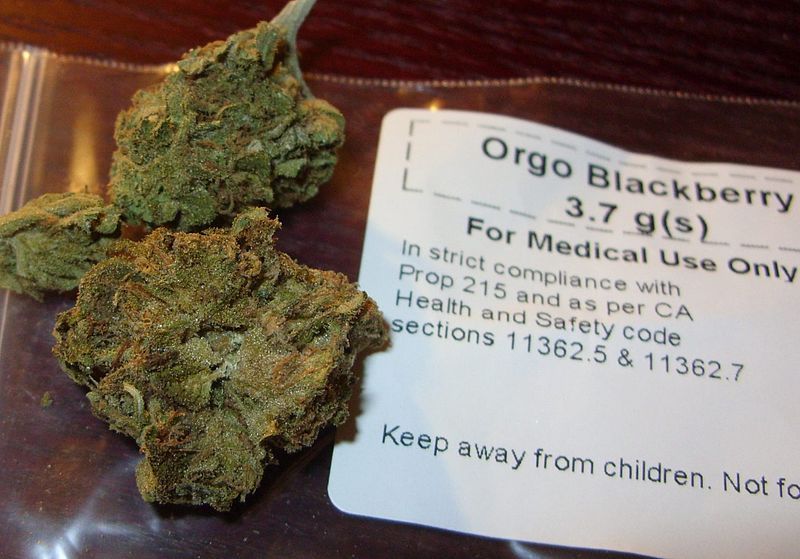Shedding Light on What Medical Cannabis Can Treat: a Comprehensive Analysis of Its Therapeutic Qualities
In current years, there has actually been a growing passion in the restorative potential of medical marijuana. While anecdotal proof abounds, a comprehensive examination of the scientific information relating to the effectiveness of clinical marijuana in dealing with these conditions is necessitated.
Chronic Discomfort Management
Persistent pain administration stays an essential aspect of treatment, requiring a thorough method for efficient therapy. In the last few years, medical cannabis has become a possible therapeutic option for individuals experiencing chronic pain conditions. The endocannabinoid system, which plays an essential role in pain modulation, has been targeted by cannabis-based treatments to minimize signs and boost lifestyle for clients.

In addition, medical cannabis offers a promising choice for clients who experience intolerable negative effects from standard pain medicines. Its capability to address discomfort through a different mechanism makes it a valuable enhancement to the arsenal of therapies readily available for persistent pain monitoring.
Epilepsy Treatment Potential
Medical marijuana has revealed promising possibility in the treatment of epilepsy, offering an unique therapeutic approach for managing seizures in individuals. Epilepsy is a neurological disorder identified by recurrent seizures, affecting individuals of all ages. Standard treatments for epilepsy consist of antiepileptic medicines, however these medications might not be reliable for all patients and can have significant side results.
Research study on using medical cannabis for epilepsy has actually exposed encouraging results. Cannabidiol (CBD), a non-psychoactive substance discovered in marijuana, has been specifically highlighted for its anticonvulsant properties. Research studies have actually revealed that CBD can reduce the frequency and extent of seizures in patients with treatment-resistant kinds of epilepsy, such as Dravet disorder and Lennox-Gastaut disorder.
In Addition, the FDA has authorized a CBD-based medicine, Epidiolex, for the therapy of seizures related to these severe types of epilepsy. This milestone emphasizes the expanding recognition of medical cannabis as a beneficial healing option for managing epilepsy and provides expect individuals who have not responded well to standard therapies.
Nausea Or Vomiting Relief Conveniences
The relief of queasiness with the usage of marijuana has actually been increasingly recognized for its therapeutic benefits in different clinical problems. Nausea or vomiting and throwing up are usual symptoms experienced by clients going through radiation treatment, those with stomach problems, and people with persistent pain conditions. Medical marijuana, with its energetic substances such as THC and CBD, has shown promise in offering remedy her latest blog for queasiness.

Furthermore, clinical marijuana provides a natural alternative for people who do not respond well to traditional anti-nausea drugs or that experience serious negative effects from these medicines. Individuals going through chemotherapy, specifically, have actually reported considerable enhancements in their lifestyle when making use of cannabis to manage nausea. As study around remains to grow, medical marijuana is significantly being taken into consideration as a useful alternative for nausea alleviation in different medical setups.
Anxiousness Decrease Impacts
Studies have actually demonstrated the capacity of cannabis in reducing stress and anxiety symptoms via its interaction with the endocannabinoid system. The endocannabinoid system plays an important role in managing emotions, consisting of anxiousness, by preserving homeostasis in the body. Cannabinoids in marijuana, such as THC and CBD, communicate with the endocannabinoid receptors in the mind, particularly the CB1 and CB2 receptors, to modulate anxiety-related responses.

People with problems like generalised anxiety condition (GAD), social anxiousness problem, and trauma (PTSD) might take advantage of the anxiolytic residential or commercial properties of marijuana (Medical Marijuana Doctor Near me). More study is required to determine ideal dosages, shipment techniques, and long-lasting impacts on stress and anxiety management.
Prospective for Swelling Control
With its recognized anti-inflammatory buildings, marijuana has revealed assurance in possibly regulating swelling within Resources the body. Swelling is the body's natural reaction to injury or infection, yet when it comes to be persistent, it can add to various diseases such as arthritis, inflammatory digestive tract condition, and also heart problem. Research study suggests that the cannabinoids discovered in cannabis, such as THC and CBD, can assist decrease and regulate the immune response swelling.
Researches have actually shown that marijuana can communicate with the endocannabinoid system, which plays a critical function in controling inflammation. By targeting the cannabinoid receptors, marijuana compounds can visit our website modulate the immune feedback, causing a reduction in inflammation degrees. This makes marijuana a potential prospect for handling inflammatory conditions where traditional therapies have failed.
Moreover, cannabis-derived products like CBD oil have obtained appeal for their anti-inflammatory residential or commercial properties, with lots of individuals using them as a natural treatment for conditions connected with swelling. While more research is required to fully understand the systems behind cannabis's anti-inflammatory results, present searchings for reveal promising outcomes for the prospective use of medical cannabis in controlling inflammation.
Conclusion
Finally, clinical marijuana has actually revealed promising healing buildings in handling persistent pain, dealing with epilepsy, eliminating nausea, minimizing anxiety, and managing swelling. Its possible benefits in different clinical problems highlight the importance of additional study and exploration into its medical use. The evidence recommends that medical cannabis might be a useful choice treatment choice for individuals looking for remedy for a variety of conditions and symptoms.
In recent years, medical cannabis has actually arised as a possible therapeutic option for individuals experiencing from persistent discomfort problems.Clinical marijuana has actually revealed encouraging potential in the treatment of epilepsy, providing a novel therapeutic method for handling seizures in individuals. As study in this location proceeds to expand, clinical marijuana is significantly being taken into consideration as a valuable option for nausea alleviation in numerous clinical setups.
In final thought, clinical marijuana has shown promising therapeutic properties in managing persistent discomfort, treating epilepsy, easing queasiness, decreasing stress and anxiety, and controlling inflammation. The proof recommends that clinical cannabis could be an important choice therapy alternative for individuals seeking relief from an array of conditions and signs and symptoms.